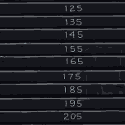|
Irritated Goat posted:I honestly couldn't say. I've never planned for clothes or stuff I need around the house. I get it as it becomes necessary. I claim it would be significantly better to create an annual budget for clothing, and living expenses, and adjust when you discover you've significantly misestimated or as the situation changes. There's a few very basic budgeting points here that you seem to be forgetting:
Now then, are you honestly suggesting that you cannot look at your existing wardrobe and get an idea for what will need replaced in the next year? Or that you don't have an idea for how many other articles of clothing might become necessary? Or how many you might randomly decide to purchase? It seems a quick survey through an online retailer would permit a very good estimate of "How much I'll probably spend". General living expenses are set in the same way. After arriving at your planned annual expenses, for each category individually, you decide what you're willing to save based on (remaining) available income and how much falls into your "wants" category ( If you have a "small emergency", you try to make it up by forming a loan from another category, with the expressed requirement that the loan includes repayment terms (hopefully you charge yourself 0% interest). An "emergency" only occurs when the budget becomes forfeit out of necessity. Most life changing events are "budget emergencies", in the sense that you have to burn your budget and replace it entirely (hopefully because you now have more income). If you have to buy $2k of new suits, so be it, as long as your new budget can get you back to positive clothing savings; you still might need to "steal" from elsewhere to make it happen, because a self-loan may not be sufficient, but that's why such events are emergencies. I'm fairly certain this is all in the first five pages of the thread, maybe even the first page. Not remembering the details. It might be time for me to reread the first post.
|
|
|
|

|
| # ? May 12, 2024 16:18 |
|
PhantomOfTheCopier posted:I claim it would be significantly better to create an annual budget for clothing, and living expenses, and adjust when you discover you've significantly misestimated or as the situation changes. There's a few very basic budgeting points here that you seem to be forgetting: I think I may just not understand how to word what it is I'm confused about. Right now, I live paycheck to paycheck. I'm working my way out but I also want to not leave things in Spending Money. If I divert any extra funds to building my emergency fund, I feel like it's working against myself to remove funds from emergency funds after that. To combat that, I'm thinking of adding buffers for things like clothing and household goods like cleaning supplies and such but no idea where to get the numbers necessary since I'm really just starting out. Hopefully that makes sense with where I'm confused.
|
|
|
|
Okay thread, impress us with the power of your words! SaveAGoon.
|
|
|
|
Irritated Goat posted:I think I may just not understand how to word what it is I'm confused about. Right now, I live paycheck to paycheck. I'm working my way out but I also want to not leave things in Spending Money. If I divert any extra funds to building my emergency fund, I feel like it's working against myself to remove funds from emergency funds after that. To combat that, I'm thinking of adding buffers for things like clothing and household goods like cleaning supplies and such but no idea where to get the numbers necessary since I'm really just starting out. If you decide to budget $50 for clothes each month and don't spend it, you could sweep the leftovers into savings. If you treat that money as gone, all it means is that if you need to replace an item worth $100 you either need to save for 2 months to get it, or cut back on your other spending (household items, eating out, groceries or whatever) to afford it. I have a separate account for spending categories that are not fixed or regular such as clothes, haircuts, car repairs, gifts etc. Over time I've calculated what I think I'll spend in each one and move that monthly sum over. If I want to spend more on one category I borrow against the other categories not out of my savings. I actually spend less than I estimate as I've mostly got over £500 in that account so it also serves as an emergency buffer that's separate from my savings. You have to just take your best guess at numbers and adjust as you go. I used to save £30 a month for car expenses then worked out that as my car got older, service and MOT was getting more expensive, so I upped it to £50. I calculated how much I spent on Christmas gifts one year and divided that by 12 to try and save in advance for it. Just look at your spends over a few months and see what makes sense.
|
|
|
|
Anyone here using Toshl for tracking and budgeting? Are you satisfied with it? I'm looking at it as an alternative to the new web based YNAB, which seems to be in over its head trying to make their cloud based stuff work. It's hard to evaluate whether it's a healthy service or if I have to fear them going away pretty soon (Toshl that is).
|
|
|
|
I've been using it for over 3 years. They recently (in the last few months) rolled out a major update and are still working some kinks out. Overall I really like it. Not a huge fan of the update but I assume I'll get used to it. I especially like that you can export to excel with the free version.
|
|
|
|
I've subscribed for a month and tinkered with it. While it does have some charty stuff, the reporting side is rather barren after all. Also, no payees, which I'm not a fan of. They say to use tags, but having multiple tags makes a single item show multiple times in their bubble chart thingy. Also, I have my car loan on it, so that networth gets adjusted properly, but when transferring money into it, said money still considered left to spend. Looks nice because of looking different, expected more in the end.
|
|
|
|
I should say I've never used ynab and don't use toshl for budgeting so much, just tracking of expenses. I prefer to slice and dice my charts in excel.
|
|
|
|
Are there any good apps that I can use to track my poo poo? I am horrible at money.
|
|
|
|
Affi posted:Are there any good apps that I can use to track my poo poo? I am horrible at money. see Technique 3 and Technique 4 mint/YNAB ideally
|
|
|
|
This is probably my third or fourth time in here trying not to be BWM. My wife and I made a budget and she's going to be managing Mint. She's set up four bank accounts total. One savings account to rebuild our emergency fund, one fun money account, one for bills/loans/rent/insurance, and one for flexible expenses that aren't fun. Groceries, gas, car maintenance, pet expenses, etc. The thing is I'm not sure what to do with excess from the last account. I want to build up savings for car and pet expenses, since big repairs or vet visits need more than one month's worth of what we're putting in there. On the other hand, I'm not sure if stuff like leftover grocery money should be saved with that, or put into our emergency savings account. I know that what we are doing probably isn't optimal, but my wife has really bad depression, this is the first time she has taken any initiative about finances, and if I just try to overrule her she'll probably get angry and depressed and give up on it.
|
|
|
|
Well, first of all congratulations on working on this! What I would recommend is leaving the money where it is for now, and using Mint/whatever to check how your spending is matching your budget. How much money is there leftover in your grocery budget each month, for instance? If it is a large amount, rather than shuffling around the money, you may just want to adjust what you are budgeting for that need (although bear in mind that a grocery budget isn't going to be completely consistent, if it includes things that are somewhat seasonal and just from variation in your habits). Basically, if you are finding that you end up with $50 left over from your grocery spending, the question isn't really 'where does this money go' as much as it is 'have I budgeted correctly'. Don't be afraid to tweak your budget if you find that it doesn't match reality, as long as you are doing that for the right reasons (ie, reducing your grocery budget because you have worked out how to eat cheaper consistently is fine, increasing your fun budget so you can buy the game you really really want is not). Otherwise, I would just leave it where it is for now and allow it to accumulate as a contribution to the less common bills like vets and maintenance. You might want to work out what you think is a good buffer for this account to have - basically, what might be the highest bill you would get that isn't in itself an emergency. Look at your insurance deductibles and your past history for that. If the account is building well past that buffer, then maybe move some of it off into your savings. I think it is better to do this than to move it into savings too soon and have to pull it out. I think its bad practice to be shuffling money in and out of your emergency and savings account because its easy to get into the habit of doing that and mixing them with your regular finances. Ideally your emergency account or savings should be like an old-fashioned piggy bank where taking things out is a serious decision because you have to smash the thing open. Its better to have something spare in your operating account.
|
|
|
|
That makes sense, thanks. I'm really glad my wife is willing to take care of Mint. Part of why I always failed was that I have a huge amount of anxiety about money, so I couldn't bring myself to look at Mint for weeks at a time. It's getting better, but it's still there. This will take a lot of the load off of me. I shouldn't have any problem not buying stuff, except maybe saving up for clothes or computer parts. Before I started working, I never had any money to spend anyway. The hard part will be not eating out / ordering delivery all the time. I'm pretty sure we've been spending maybe $500/mo on that for years. I'm going to keep reading the BWM thread for motivation, are there other pages/podcasts or anything to motivate me/remind me how essential this is? E: thanks to my tolerance for horrible grindfests and tendency to replay my favorite old games, I haven't bought a game for myself since late 2014. Our only entertainment spending lately is Netflix, aside from the aforementioned horrible amount of restaurant spending. 22 Eargesplitten fucked around with this message at 20:55 on Aug 24, 2016 |
|
|
|
I'm in agreement on the "slow moves" approach for anything that isn't any emergency. Read the OP. The general idea is that you should feel comfortable holding up to at least one month's extra in each account. If your monthly grocery bill is $400, then you shouldn't be worried if your balance is in the 400-800 range. If it's below 200, you'd better hope the month is more than half over. If it's never below $800 and your monthly expenses have dropped for groceries, it's time to reduce the income in that category (by a tad). There are many reasons to have one to six months ahead in regular expense accounts. It certainly helps spread risk aversion, makes it easier to calculate how much emergency savings you have, and prevents flippant use from developing a pattern of moving things around without reason, as already mentioned. Food prices rise, sometimes unexpectedly due to shortage, so you want the buffer to cover seasonal cost variations and inflation. Once all accounts are one month ahead, it's time to aim for two, etc. Rent is always the worst. In any case, sometimes it's better use of your money to have an account in depletion, but most should be in accumulation.
|
|
|
|
That's a good point. We're currently at the point of barely making rent, so it will be a while before we can have a month's cushion, but I'll do that when I can.
|
|
|
|
Mint doesn't treat 401k investment deposits as "income" because it goes directly from my employer to my 401k account. Is there an easy way of fixing this? These types of issues seem to break "income", "net income", and other "trends" to the point where they're unusable. I was trying to figure out how to add the transactions manually but can't figure out how to get it to track properly. (Add a +$XXX transaction, but then remove it in a a way that it's not tracked but gone from my account...?)
|
|
|
|
Blinky2099 posted:Mint doesn't treat 401k investment deposits as "income" because it goes directly from my employer to my 401k account. Is there an easy way of fixing this? It'll still show up in net worth, which is all I ever cared about. It's not income I can spend or include in my budget, so for all intents and purposes, it's not there. It shouldn't be showing up in net income, since that is gross income minus all deductions including taxes, retirement contributions and medical contributions.
|
|
|
|
Peanut3141 posted:It'll still show up in net worth, which is all I ever cared about. It's not income I can spend or include in my budget, so for all intents and purposes, it's not there. Ok, makes sense. Net worth has been my only tracker as well -- I guess I'll just keep ignoring the rest as they don't seem very useful as-is. Thanks.
|
|
|
|
Blinky2099 posted:Ok, makes sense. Net worth has been my only tracker as well -- I guess I'll just keep ignoring the rest as they don't seem very useful as-is. Thanks. If you're salaried without overtime pay, it is fairly useless to see $X being deposited every N weeks; you already know what's happened and what will happen. But if you have variable income due to paid overtime, not being full-time/salaried or doing independent contractor work, I can imagine the net income is useful to see what your long term average looks like and give you a monthly target for budgeting if you want to go with a smoothed spending profile. The trends can help make sure your month-to-month smoothing isn't screwing you over by showing you your balance trajectory. I'm guessing some YNAB users felt a great disturbance in the force as I typed that.
|
|
|
|
If there's one reality to money, it's that dogma will always be broken and in most scenarios by a greater number of cases than originally anticipated. With a spreadsheet you get "you should add correctly" as your axiom. With Mint you additionally get "transactions that happened shouldn't go missing". YNAB is sold as an interface to a dogma, hence 
|
|
|
|
Peanut3141 posted:If you're salaried without overtime pay, it is fairly useless to see $X being deposited every N weeks; you already know what's happened and what will happen. But if you have variable income due to paid overtime, not being full-time/salaried or doing independent contractor work, I can imagine the net income is useful to see what your long term average looks like and give you a monthly target for budgeting if you want to go with a smoothed spending profile. The trends can help make sure your month-to-month smoothing isn't screwing you over by showing you your balance trajectory. I think the YNAB sperglord answer (the correct answer) is to just properly budget everything including whether I can or cannot contribute 100% to 401k or deal with a $5k poker loss a certain month or whatever. I just like pretty graphs generated automatically Blinky2099 fucked around with this message at 23:53 on Aug 31, 2016 |
|
|
|
You guys, I'm just starting a budget for my family because we've just obtained our first "real" jobs and it looks like an absolute blood bath. How the gently caress are we drawing $15,500 in salary and projected to break even every single month?
|
|
|
|
EAT FASTER!!!!!! posted:You guys, I'm just starting a budget for my family because we've just obtained our first "real" jobs and it looks like an absolute blood bath. I'd love to know the answer, so please post category amounts when you find out. Bonus points if you're spending over $1,000 on alcohol/eating out. Condolences if over half that is student debt payments.
|
|
|
|
These are all projections, because we haven't OFFICIALLY closed the house yet. Double bonus points that we bought it as a zero down 5/1 ARM because we are future BWM poster children. Okay so: 2 incomes both totaling ($15,500) after maxed tax favorable (Roth VSP) and tax unfavorable (403b) retirement donations Expenses: Further $1000/month to 529 $2400 a month for MBA tuition $250 a month for diaper expenses $52 a month for miscellaneous entertainment (books and Netflix, chiefly) $600 a month for dining out $800 a month for groceries $400 a month for assorted charities $1800 a month for mortgage, homeowners and property tax $815 for utilities (water, sewer, electric, gas, garbage) $1000 a month for childcare $300 for internet and phones (3) $120 for personal care (gym, haircuts, toiletries) $200 a month for pet expenses $1500 for future debt payments yet to be incurred $1125 for current student loan payments (will balloon based on income based repayment plans) $350 a month for gas $150 a month for car insurance $110 a month for car registrations $100 a month budgeted for car upkeep $2100 a month for car payment and projected car payment So we're both docs, we both just got our first grown up attending jobs, we made some good decisions (pay yourself first, some money socked away for retirement) and some bad decisions (flossy new car). We still have like $15,000 in CC debt, we now have a car loan at 2% and a home mortgage at 3.25%. Unspeakably awfully we have a total of like $400,000 in student loan debt, but $270,000 of that is scheduled to be forgiven if my wife keeps making minimum payments. That's not the direct I saw myself going with that debt, but given that the Obama administration has codified it and that physicians are allowed to use that (we work for state institutions) I guess we should take advantage of it. Thus our net worth is pretty brilliantly bright red right now, but I'm most worried about how we're going to pay down these credit cards, assemble an emergency fund and claw ourselves forward.
|
|
|
|
$600 a month for dining out This would be a good place to start, and I wouldn't call you an rear end in a top hat for not spending $400 a month on charities because seriously I think you need to trim out some fat there And obviously that loving car payment is killing you as well.
|
|
|
|
I'm surprised at the $800 in utilities, esp if your mortgage is only $1800. I think $1400 for food is ridiculous, and it looks like you guys are spending like you make $$$$ when you really only make $$ once you take all the debt into consideration. I'd consider not getting that car that is the projected one for sure until your pay off your debt/MBA tuition.
|
|
|
|
These are some great insights. Fortunately, I do have a second car that is paid in full, it's just getting a little beat up at this point and is 13 years old. I think we can make it run another 2 years, but that might become an emergency if it doesn't. (Our new car is literally $1350, it makes me sick to think about that decision, having read some personal finance literature in the intervening weeks). I really enjoy it, and it's for my wife and the baby, but still. I should probably also add that I get quarterly "bonus payments" of approximately $15,000. These were going to cover some of the heavy lifting as far as drawing down our debt and improving our financial outlook, but they can't really be counted on or budgeted for because I've heard they can vary a bit based on departmental revenue.
|
|
|
|
Rurutia posted:I'm surprised at the $800 in utilities, esp if your mortgage is only $1800. I think $1400 for food is ridiculous, and it looks like you guys are spending like you make $$$$ when you really only make $$ once you take all the debt into consideration. I'd consider not getting that car that is the projected one for sure until your pay off your debt/MBA tuition. A lot of the spending on food is convenience based - we work terrible hours and so eat out a lot because we can't be assed. The $800 for utilities was just a guess, I've never been a homeowner before.
|
|
|
|
Your budget is insane because there are equal numbers of things that seem totally reasonable (entertainment, childcare) and completely bananas (eating, utilities) Do you have a plan for the MBA? Because you are already a doctor, so if you are going to spend $30,000 a year on more schooling it had better have a concrete payoff. You need to rethink that car situation, especially whatever is 'projected' there. If you absolutely need another car for commuting or something, buy a used car cheap until you have a handle on all your debt payments. You do not need a flashy new car while you are sitting on $15k of consumer debt. Edit: Ok, now I want to know what the $1350 car is. Speaking of which, I don't actually see a line item there on paying down your CC debt. Every time I look at the budget I find new things to confuse me. Did you make a mistake with your car registration costs? There is no way that can be right.
|
|
|
|
Wait your new car is $1350 a month but you've got $2100 budgeted for auto loans Are you getting a second car that's going to set you back $700 a month? gently caress dude, I know you're a fancy pants doctor but just buy a drat used Toyota like the rest of us instead of a gold-plated benz E: And yeah there's no way car registration is $100 a month unless you're driving a taxi on the side or that $1350 car is literally GRAVE DIGGER Sockser fucked around with this message at 22:13 on Sep 27, 2016 |
|
|
|
EAT FASTER!!!!!! posted:A lot of the spending on food is convenience based - we work terrible hours and so eat out a lot because we can't be assed. The $800 for utilities was just a guess, I've never been a homeowner before. Meal plan better. Cook in bulk when you have time, then eat from that when you don't have the time. I get the eating for convenience, my husband has the same, but for now you guys need to choose your poison. Choose either your ridiculous MBA tuition or your ridiculous food spending or your ridiculous car. You need to make a sacrifice somewhere, making more means less not no sacrifices. At your income, you should be saving far more than you are. You will not be able to remotely maintain your current lifestyle by only maxing out your 401k/Roth. EAT FASTER!!!!!! posted:(Our new car is literally $1350, it makes me sick to think about that decision, having read some personal finance literature in the intervening weeks). I really enjoy it, and it's for my wife and the baby, but still. $1350/month worth of car is not necessary for your wife or baby. That's not why you bought that much car, it's because you enjoy it. Don't excuse it as anything less than a luxury expense. And again, you need to pick and choose what luxuries you get, because you can't get them all.
|
|
|
|
It's my first time making a budget Ashcans, don't be an rear end in a top hat. I will try to clarify. The MBA comes with a guaranteed $20,000 a year pay raise. It positions me to be a departmental or hospital administrator, which is the job I want eventually. I've already scrapped the idea of the second car, part of this exercise was confirming for myself (and having others re-mediate for me) that it would be totally unreasonable. The utilities estimate is likely bananas because I've never had them all to myself before and I didn't want to get screwed one day to find out they were actually going to cost that much (I overestimated). The eating out thing is probably not that much of an overestimate; I've gone through three months and the average has been $400. It is clearly a place we can cut back. The $1350 car is a loaded Volvo XC-90. I really like it. It's the luxury that I get to enjoy. The line item for paying down the CC debt is the "$1500 of debt yet to be actualized" and the "windfall" money that I earn quarterly. The car registration was a projection, although my yearly registration is 1% per sticker price + 0.40 * gross weight. Which works out to like $50 a month for the XC. edit: I should say also thank you everyone so much for your insight into this. It's hard to believe *HURR SMART DOCTOR* but a lot of the path of training in medicine is about not really understanding adult responsibilities and delaying gratification. When you finally feel like you have the room to buy something without worrying that the money is going to run out "oh it's just a cash flow problem" it gets really dangerous. I'm truly grateful for your insight. You guys are masters at this, and I want to be better. EAT FASTER!!!!!! fucked around with this message at 22:22 on Sep 27, 2016 |
|
|
|
I am sorry if I was an rear end, I realize that isn't helpful when you're trying to work stuff out and I wasn't trying to wind you up. I really was/am confused because there are things all over the place in the budget - not meaning overspending, but that just seem strange or confusing. I can't imagine that you will end up paying $800 in utilities, for instance, but it is totally ok if that is your 'I don't know, let's not get blindsided by this' safety guess and it ends up coming in way below that. Then you have extra money to apply to your debts, not a shortfall. I'll make a more helpful post later tonight and make sure I am not a dick. Good job on actually tackling this head on.
|
|
|
|
EAT FASTER!!!!!! posted:The eating out thing is probably not that much of an overestimate; I've gone through three months and the average has been $400. It is clearly a place we can cut back. quote:The car registration was a projection, although my yearly registration is 1% per sticker price + 0.40 * gross weight. Which works out to like $50 a month for the XC. Is that how car registration works in other states?? I've lived in Pennsylvania my whole life but I sort of assumed every other state was at least sort of similar where it's just like a $50 check you need to cut once a year. Suppose it makes more sense to do it by value of the car.
|
|
|
|
Sockser posted:Is that how car registration works in other states?? I've lived in Pennsylvania my whole life but I sort of assumed every other state was at least sort of similar where it's just like a $50 check you need to cut once a year. Suppose it makes more sense to do it by value of the car. When I bought my Tacoma new in 2001 here in Arizona, it was about $300/yr to register it. 15 years later, I pay $200 for two years. It's probably worth roughly 1/3 of what it was new, so I assume they're working off some sort of KBB/Edmund's value estimator.
|
|
|
|
Sockser posted:Something that I do in my budget, since I get lots of work lunches at the local sandwich establishments, is to have a separate budget item for 'fast food'=poo poo lunches I'm buying at work and 'dining out'=taking my girlfriend out to a restaurant or ordering in some GrubHub or the like. This might be overkill for you, it might not. I like to track them independently. The top one is a GREAT idea, I'll share it with my wife (who also works at the same hospital that I do - we get to see each other for lunch sometimes it's actually really cute) and yeah, I'm coming from Pennsylvania, and a car older that 10 years you just pay $25 a year for but any car 1-3 years old is registered with that formula and it scales down to 10 years being basically nominal.
|
|
|
|
Peanut3141 posted:When I bought my Tacoma new in 2001 here in Arizona, it was about $300/yr to register it. 15 years later, I pay $200 for two years. It's probably worth roughly 1/3 of what it was new, so I assume they're working off some sort of KBB/Edmund's value estimator. A Tacoma is the car I shopped for the longest before my wife/MIL convinced me she had to have the Volvo. Heh. I am glad to hear yours is still running, I am looking at getting one used once I get this tuition paid (or the car breaks).
|
|
|
|
If you don't have time to be managing your money, your default position should be to not spend it, as opposed to dumping it all on restaurants and bling. As others have mentioned, the budget needs some more polishing; you have a few realities being masked by the categories you've chosen, which will make it more difficult to identify the silly. For example, you have a ton of food, and while $600 might well represent two nice evening meals plus some number of lunches or lighter evenings out for two people, it's sitting on top of $800 of groceries. That's burning 10% of your monthly just on keeping your stomach from growling. Now then, restaurant food is notoriously bad; with the sodium content alone, your doctor clipboards should be bursting into flames. You're also pulling the efficiency gambit when in fact most meals take the same prep time for a restaurant as for a family. Water takes the same time to boil, pasta the same time to hydrate, and if you just have to coat it in tomato glop, then you can dump that from a jar into a saucepan and it'll be warm in five. Compared to $15-20 at a restaurant, you'll save tons. Most tomato lovers find that plain makes a better sauce over time, and then you've cut out all the oil and karap from the jar. That's fifteen minutes you can spend with your spouse, your kid, or making tomorrow's lunch, setting up Netflix, etc. Another hidden inefficiency of restaurants is based on the schedule: If you are there during busy times, it takes longer, you stay longer, eat more, probably don't take stuff home (depends on the person obviously), and then get caught in traffic. (I rarely go to team lunches at noon, for example, because it takes twice as long.) More later.
|
|
|
|
EAT FASTER!!!!!! posted:A Tacoma is the car I shopped for the longest before my wife/MIL convinced me she had to have the Volvo. Heh. I am glad to hear yours is still running, I am looking at getting one used once I get this tuition paid (or the car breaks). Only 102k miles as I used to live 4 miles from work and am a homebody. I'm toying with the idea of gifting it to my nephew whose amniotic fluid might still be on the passenger seat. I gave my sister a ride to a fast food place the day I brought it home from the dealership and he decided he was on his way while we were there. :P My first car was a 1978 Corolla that was made the same year I was born. I figure it'd make a good family tradition.
|
|
|
|

|
| # ? May 12, 2024 16:18 |
|
PhantomOfTheCopier posted:If you don't have time to be managing your money, your default position should be to not spend it, as opposed to dumping it all on restaurants and bling. As others have mentioned, the budget needs some more polishing; you have a few realities being masked by the categories you've chosen, which will make it more difficult to identify the silly. Yep, totally valid. There are only 3 of us, and the baby is 3 months old (breast milk is free!) so the food is pretty stupefying. Of course my MIL is of the mindset that it's all gotta be 100% organic, so the food really does add up. This is great advice, though, and I'm not trying to bicker I just feel powerless because we're subscribed to a lot of spending that feels out of my control. edit: the pages of negotiations I had to do just to get cable off this list go unheeded.
|
|
|


















